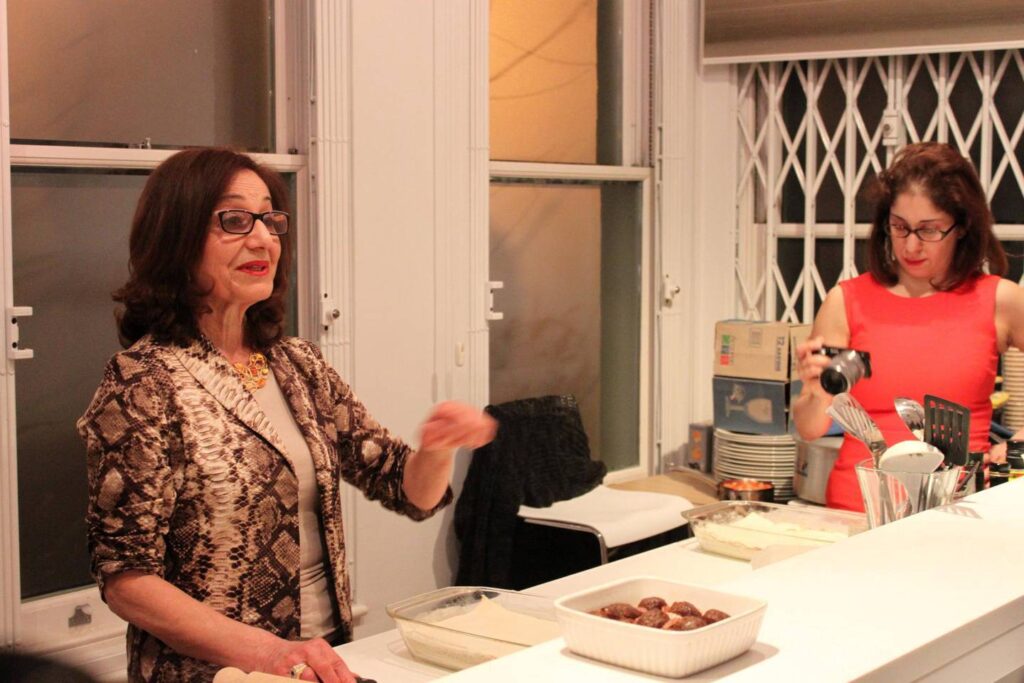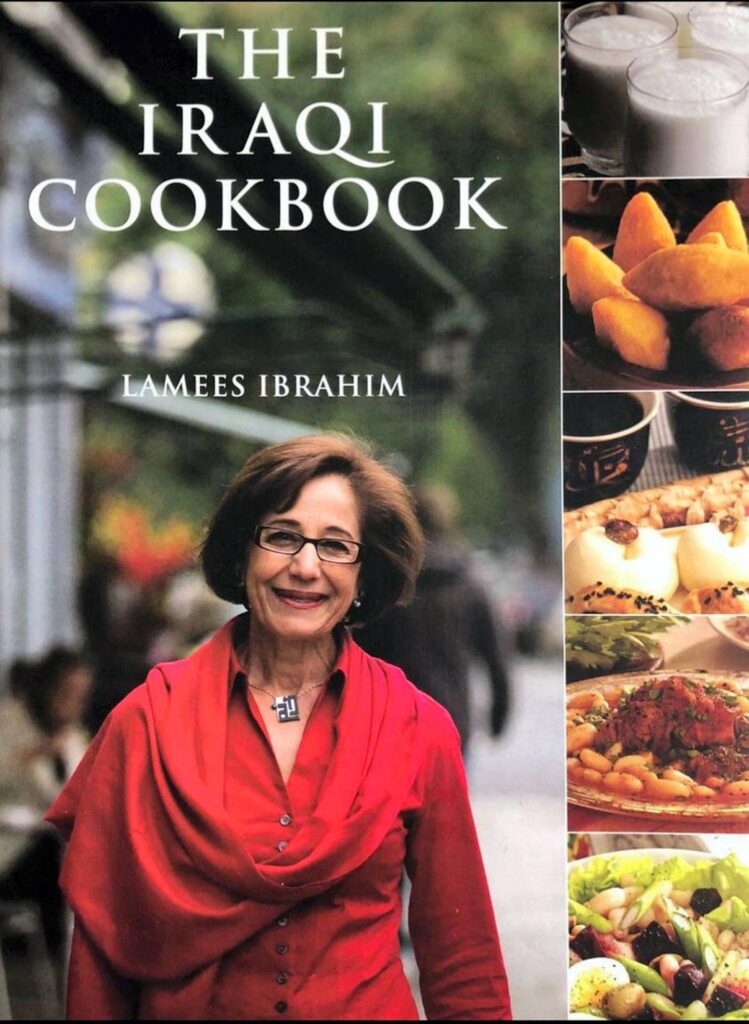Handed-down skills won the medic crown of Great British Sewing Bee champion.
Head bent in concentration, tape measure slung around her neck, young Asmaa Al-Allak often knelt on the floor amid piles of colourful fabric even as rockets whistled above the family home in southern Iraq.
The seven-year-old would take in every detail of her mother and grandmother flicking through pages of their favourite fashion magazine and discussing the sewing patterns for each outfit featured in that month’s issue.
While the two women traced templates on to bolts of material, Asmaa mimicked them in miniature on remnants for arguably the best-dressed Sindy doll in war-torn Basra.
Four decades later, childhood memories like these compelled Al-Allak to become a contestant on The Great British Sewing Bee 2023, a reality TV show she won in an achievement that, for her, topped even attaining a medical degree.
“Creativity is in the genes,” she tells The National, laughing over a zoom call from Wales, where the consultant breast surgeon, now 47, lives with her engineer husband and children, Sophia, 20, and Jacob, eight.
“My grandmother taught me the basics of sewing, my mother built on those and the rest is self-taught.
“The first thing I remember making for myself was a green cotton pinny dress with a floral design. Terrible! My gran was the only one who was positive, saying: ‘My God, that’s so amazing.’ But that’s grandmothers for you.”
Mariam Al-Ethan didn’t live to see her granddaughter’s greatest triumph but photographs of her were pinned to a vision board for inspiration throughout the competition, and Al-Allak proudly wore a necklace inscribed with the word “Allah” that her grandmother bought for her in a gold souq.
Married at the age of 12, Mariam had long sewed clothes for her extended family before becoming a professional seamstress out of necessity during the prolonged armed conflict between Iran and Iraq in the 1980s.
“It was a really difficult time. Even though my grandad worked, he didn’t have enough to support the family,” says Al-Allak.
In spite, or perhaps because, of being illiterate, Mariam made determined efforts to send her seven children, including Asmaa’s mother Fatima, to university.
Fatima studied at the University of Basrah before undertaking a doctorate in physics at Cardiff University with her husband, Haider, soon after baby Asmaa arrived in 1976.
Initially, Asmaa and her brother Ammar, born two years later, were raised by their maternal grandmother but joined their parents for a few years when Fatima sent for them shortly before hostilities broke out. No longer able to stay in the UK after finishing her PhD, however, Fatima returned with the children to Iraq.
Haider feared his name might be included on the Baathist regime’s list of traitors and objectors and a longed-for reunion would not occur for another eight years.
The Al-Allak siblings were plunged into a war zone, frequently changing schools as they moved between Basra and their father’s relatives near Baghdad, whichever was deemed safest as Iranian troops fired mortars across the border.
When classes were disrupted for up to three months at a time, Asmaa sat transfixed for hours watching broadcasts of the devastation.
“I’ve seen [images of] dead bodies lying in the road,” she says in a flat voice. “If the Iraqi army had a good advancement or had won a battle, they would show pictures from the front on television.
“Even though they were supposed to be the enemy, for me, they were people who had died. My decision to study medicine came because of what I’d seen in Iraq.”
She became an expert in gauging the threat from rocket fire. If a whistle could be heard overhead, Al-Allak knew it was probably going to travel farther.
The ones that didn’t whistle were the more dangerous “because you didn’t know where they would land”.
Backbone of the family
While her mother worked as an assistant professor at the University of Basrah, Al-Allak inevitably grew close to her grandmother, ever the backbone of the family.
The detached house was surrounded on three sides by other homes, and Mariam declared the small kitchen, tucked away at the rear, to be the safest of all the rooms. There, the extended family retreated during the worst bombing campaigns, lying “like sardines” on two mattresses squeezed between the oven and fridge.
For Al-Allak, the rules and rhythms of sewing became a comforting reliability in a world of chaos and confusion: if she followed a pattern, cut fabric on the bias, respected the grain line and measured correctly, a satisfying outcome was guaranteed.
“The only thing that’s kept me going and balanced in life – especially in the past few years – has been sewing.
“It’s my escape, my way to forget about all the troubles in the world and at work. I don’t think I will ever stop.”
An opportunity arose for Al-Allak to rejoin her father after the Gulf War ended in 1991 when Haider was a British citizen working as a physics researcher at Durham University.
Fatima and the children had already endured one failed attempt to leave after Saddam Hussein invaded Kuwait the year before, packing their bags and waiting in Baghdad for two days before realising all flights had been cancelled.
This time, at Mariam’s behest, she wasn’t taking any chances. “We left everything behind and walked away. There was still food in the fridge and toys on the floor.”
Ripped from her roots
If Al-Allak was devastated at being ripped from her roots, worse came on hearing of the impact the sudden separation had on her grandmother, who sat weeping surrounded by their abandoned possessions.
“It broke her heart,” she says.
After a gruelling 24-hour bus journey to Jordan, the family waited a month for visas to Britain, arriving in the north-east of England in August.
Young Asmaa had forgotten most of the words picked up during her three-year stay as a toddler, and the other pupils at Framwellgate School showed no mercy, mocking her poor grasp of the language, using racist taunts, and pulling her hijab off.
She was pushed to breaking point, and it is clear that the recollections are still painful.
“I couldn’t wait to leave. I used to go home and cry. I said to my Mum: ‘I’m not going back to school. I just can’t do it any more.’”
But Al-Allak, one in a line of strong women, developed a methodical and meticulous means of getting by. “My five-year goals keep me going through life,” she says.
“For me to become a doctor, I knew I had to get good grades. I had to cope with the surrounding environment and not let it affect me.
“My mother was a rock. She told me to rise above it and sat with me with a dictionary trying to help but English wasn’t her first language either.”
Sheer determination earned Al-Allak a place at Cardiff University to study medicine, where for the first time in her teenage years she felt a sense of belonging.
Though she had seemingly left sewing behind in the ancestral home together with her beloved Sindy doll, her mother carried on, making surgical scrubs and other outfits for her on a Singer sewing machine bought at a car boot sale.
That old Singer has since been usurped by a newer model but still sits in Al-Allak’s office near the desk where lace and fancy packaging for the bespoke mastectomy bras she creates for her patients can be glimpsed. There, too, is the Sewing Bee award, and, on a mannequin, the dress described by the show’s judges as “spellbinding”, and “a feat of genius” and “clever engineering”.
Modelled in the final by her close friend and fellow doctor Pritti Aggarwal, it unfurled in a mesmerising transition from electric blue shift dress into shimmering emerald gown.
Al-Allak’s skill at overcoming obstacles such as this last of the 10 weeks of tough sewing challenges will, she hopes, increasingly be put to use to help breast-cancer patients recover physically and mentally, unencumbered by uncomfortable bras or incorrectly positioned inserts for prosthetics.
She plans to continue campaigning for greater consistency in patient provision, while developing the mastectomy lingerie into a viable venture.
“It’s one of the things I’m really passionate about,” she says. “On the NHS, you get a prosthetic to fit in your bra for free. Sometimes the company will also offer a free bra but not always, and the pocket might be on the wrong side.
“You’ll have darker-skinned women receiving a light-coloured prosthetic because there is no other option. Patients are offered different things in different parts of Wales.”
Al-Allak talks of how she employs the same knots during suturing in surgical procedures as those used in sewing but isn’t sure whether the medical skills inform her craft or vice versa; she is inclined to think probably both.
Certainly, her love of fashion dictates the choice of “work” shoes that add several inches to her 5ft 2in frame – red-soled patent leather stilettos only swapped for pink Crocs covered in butterflies in the operating theatre.
“Because I make all my clothes, my one guilty pleasure is Louboutins ,” she admits. “I bought my first pair when I became a consultant and I only buy one pair a year.”
That taste for the finer things in life earned Al-Allak the title of “Queen Asmaa” on The Great British Sewing Bee.
Alas, Sophia, heir-apparent, has yet to take up needle and thread in any way that her mother might describe, in her strong Welsh lilt, as “proper serious” but has found an outlet for her imagination as a fine arts student.
“I think it will happen at some point,” Al-Allak says, hopefully.
Meanwhile, the two have bonded over a shared love of musicals, such as Phantom of the Opera, Wickedand Hamilton, and have been to Take That and My Chemical Romance concerts together.
Young Jacob, however, expressed an interest in sewing at seven years old, the same age his mother started, and he helps with cutting, pinning and basic stitching.
“Look what he made!” Al-Allak says, gleefully waving a pattern weight stuffed with rice.
And so the rich seam of familial creativity runs on.
source/content: thenationalnews.com (headline edited)
__________

Asmaa Al-Allak says winning The Great British Sewing Bee topped gaining a medical degree. Photo: BBC
_____________________________
UNITED KINGDOM / IRAQ

